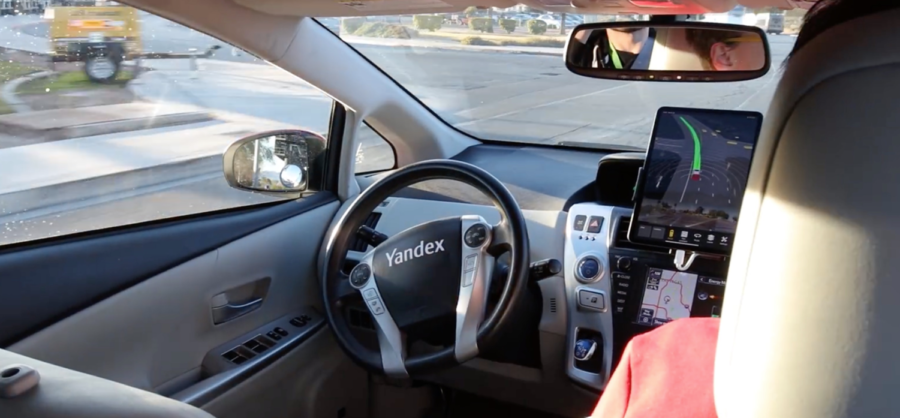CES 2019 Continues to Push the Limits of Technological Possibilities
Among the many innovative releases of CES 2019, the self-driving taxi shows the sensor data recorded form the iPad and cameras of the vehicle.
More than 180,000 people traveled to Las Vegas for Consumer Electronics Show (CES) 2019 from Jan. 6-11, according to Consumer Technology Association (CTA). Rollable TVs, self-driving taxis and artificial meat are among the many new innovations of this year.
Every year, CES showcases over 4,500 companies with consumer technology. In the past, many products have been announced at CES such as VCR, DVD, Blu-ray, OLED displays and 3D printers.
Despite not being an electronic manufacturing company, Impossible Foods introduced its Impossible Burger 2.0, a lab-grown meat alternative that has the same flavor and nutritional value as regular ground beef. According to Impossible Foods, the impossible burger will be available at The Counter at Woodbury Town Center and several other locations at the Irvine Spectrum.
Samsung and LG revealed their best displays, and this year was no exception. Both companies released OLED TVs utilizing the organic light-emitting diode to enhance color contrast through manipulation of lighting particles. Samsung and LG’s 8K OLED TVs are among the first of its kind to be color accurate and thin, according to Tech Radar.
“LG is going several steps further by making the TV go away completely whenever you’re not watching,” Verge news editor Chris Welch said.
LG’s 65-inch rollable TV rolls into a box when it is not in use using two mechanical arms and small OLED panels that bend. The box includes the 4K OLED TV, a powerful Dolby Atmos speaker and many features just like a smart TV. While it does not sacrifice the user’s viewing experience even with its flexibility, the price tag starts at $8,000.
Self-driving cars have been around for a few years, but those have required a person in the driver’s seat. Yandex created a self-driving taxi that takes complete control without the help of a human. Cameras are mounted on a Prius to see the road, so this technology can be used for any car. Although self-driving taxis will not take over the streets anytime soon, companies like Tesla have already begun using the new technology.
“The goal is to expand ride-hailing service to Kazan and Moscow when the company receives regulatory approval, which could be within ‘months,’” said Kyle Wiggers of VentureBeat.
Your donation will support the student journalists of Portola High School. Your contribution will allow us to purchase equipment and cover our annual website hosting costs.

William Hsieh is your 2019-2020 Front Page Editor. He has previously served as the Director of Photography last year. He likes photography and graphic...




